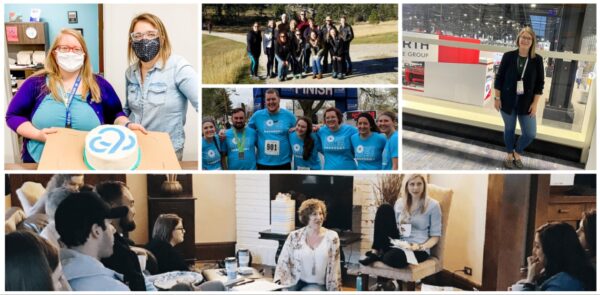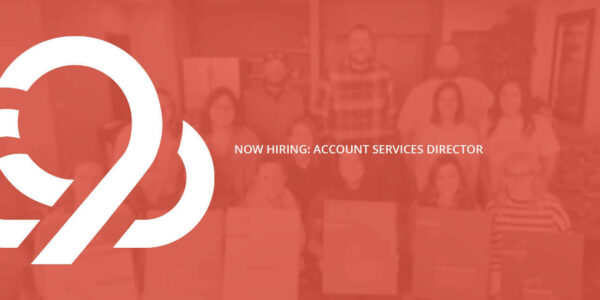
Your Driverless Car Questions, Answered
9 Clouds was founded to help teach businesses how to use the Internet more effectively.
Asking questions is the best way to learn. Since education is one of our core values, we were thrilled when Gail reached out to ask for more information about autonomous vehicles, a topic we’ve been writing about a lot lately.
For those who are equally curious about the topic of driverless cars, here’s a look at our conversation with Gail.
And if you come up with any follow-up questions, feel free to ask! We’ll do our best to connect you with the right information.
Q: How Can Tech Companies Find Driverless Car Success?
Gail first wrote us back in July after checking out our “Driverless Cars: Yea, Nay, or Meh?” webinar.
Here’s part of what Gail wrote:
I am a student studying for her final accountancy exam, and my final paper is a case study about a company aiming to develop technology for driverless/autonomous cars.
I have just listened to your webinar “Driverless Cars: Yea, Nay, or Meh?” and it has been very informative regarding how car dealerships will have to adapt their business model because of the onset of driverless vehicles.
However, my case study is regarding a company that is looking to develop the technology for a driverless car (with driver present) in the short term, and in the long term, to create totally autonomous technology to supply to the vehicle manufacturers. They already make sat navs, cruise control, parking aids, etc., by outsourcing to a manufacturer.
Do you have any webinars on what these type of companies should be aiming to do to remain successful?
A: By Offering the Best Tech to the Right Partner
We don’t have a webinar like Gail described, but we still wanted to do our best to help answer her question.
After all, asking each other about the possibilities of self-driving technology and the way it will integrate into the auto industry helps us prepare for the coming changes.
To that end, we answered with:
Without branching too far into the business side of things, the trick is going to be arriving at the tech quickly and more effectively than others. If you take a look at the tech section of this post, I broke down the clearest hurdles for people developing the “how” of autonomous execution.
When you also consider the legal hurdles, and the overall goals of autonomous vehicles, partnerships will be vital. Getting involved with one of the big guns in the driverless race is probably the ideal — either Lyft/Google or Uber — or trying to demonstrate the value of their products to companies interested in pursuing autonomous ends that may not be as far along, like many of the current auto dealers (of which Ford has probably been most vocal about their aims).
On a more philosophic level, a company might consider the “why/how/what” perspective Simon Sinek champions in this well-worn TED talk.
Let me know if that gives you a start or if you have other questions! Good luck with your case study!
Q: Will Fully Autonomous Cars Ever Be a Reality?
Gail thanked us for the information, saying, “I think this will give my script the depth the examiner is looking for.”
Then, we got another email a month later:
Thanks so much for replying and helping me with my studies.
My final exam is now only a week away, and I have been doing a lot of studying these last few weeks. I was wondering if you would have time to share your thoughts on the one thing that is giving me a red flag about my company’s mission, which is “to make cars drive themselves”:
Do you think the fully autonomous car will ever be a reality (I’m thinking about one you would put your kids in and send off to school without a driver), and if so, how long into the future do you think it will be?
I think it will be a long way off, and so auto OEM [original equipment manufacturer] tech companies need lots of other products to sell in the meantime, and that should be their medium-term focus.
Perhaps if an OEM can’t get an alliance with one of the big guns (who have massive amounts of spare cash for research), it would be better to focus on products that make human driving safer and more convenient?
A: Yes — But Not Without Capability, Legalese, and Public Trust
Gail raised some great points there. We were excited to share more of our thoughts:
Hey Gail, glad things are going well, and good luck on your final exam.
It’s really hard to say when we can fully hand the reigns to automated systems. Based on most of my research and discussion, I’m guessing full autonomous capability will be widely available in 10 years (I think we’ll have mostly driverless cars in the next four or five; then I’m allowing five years to push past needing a driver at all). I think Uber and Lyft/Google in particular will push on removing the driver from the equation to cut costs on ride-sharing/taxi services.That said, I think that more impeding than technological constraints will be legislative progress and public trust regarding autonomous technology. People will be won over slowly and surely, but certainly there will be holdouts and limits to their faith in the tech.As a direct result, some companies may be slow to push for fully automated systems that don’t require a driver if there isn’t a market asking for it. Out of caution, legislators will be a little slow in crafting the laws and frameworks for almost everything with driverless vehicles, though they’ll pick up the pace as more of the public is won over.If you haven’t yet, maybe dip a toe into researching Elon Musk’s hyperloops. The idea of pods instead of cars could help Americans reframe how we view transportation and guide us to come around on cars without drivers.
Join the Conversation
9 Clouds wants to give a big thanks to Gail for letting us share this conversation with our readers. We wish you all the best as you await the results of your exams, Gail!
Again, let us know if you have any questions for 9 Clouds.
Make sure you’ve subscribed to our blog to stay up to date on the latest trends we write about. If you’re really ready to step up your online efforts, consider a free digital audit.



![Human vs AI A/B Test [Spoiler Alert: Humans Win!]](https://9clouds.com/wp-content/uploads/2024/02/Volvo-dealership-1-600x388.png)


